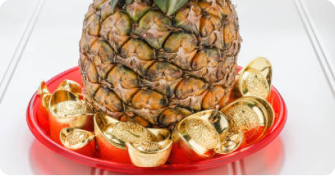Myths (FAQs)
- Home
- Consultation
- Myths (FAQs)

1. Does Feng Shui Include the Practice of Key-collection or Initial Door Opening Ceremonies?
Based on authentic Feng Shui principles, there is no traditional concept of a “key-collection ceremony” or “initial door opening.” Traditional Feng Shui practices involve considerations of auspicious dates and times for various activities, typically guided by sources such as the Chinese Almanac, which is commonly used to determine favorable timings for events like weddings, opening ceremonies, and renovations. The Chinese Almanac covers a wide range of activities based on traditional Chinese metaphysics, but it does not include specific mentions of rituals related to the key collection or initial door opening.
The absence of a historical or traditional basis for such ceremonies suggests that the concept may be a modern creation. This particular ritual appears to be a unique practice originating in Singapore, as it is not widely observed in longer-standing Feng Shui traditions in countries such as China, Taiwan, or Hong Kong. The evolution of Feng Shui practices can be influenced by cultural, regional, and contemporary factors, leading to variations and new traditions that may not align with classical principles. As such, the key-collection ceremony seems to be a localized and contemporary adaptation rather than a recognized aspect of traditional Feng Shui.

2. Is Rolling of Pineapple Considered Auspicious As Per Feng Shui Before Moving into a New Property?
The practice of rolling pineapples and shouting “huat” for auspiciousness before moving into a new property is not a recognized or traditional Feng Shui ritual. While some individuals may find this ritual amusing or personally meaningful, it is not grounded in classical Feng Shui principles.
Feng Shui is a practice rooted in the principles of energy flow, balance, and harmony within the environment. The use of colours and arrangements is based on ancient Chinese metaphysics and the observation of natural elements. The idea that the sound or name of an object brings luck is not a fundamental aspect of Feng Shui.
Traditional Feng Shui involves the careful consideration of factors such as the layout of a property – the placement of the main door, bed and stove at home and for commercial properties the main door location, key personnel office layout and the balance of elements to enhance positive energy flow.
While personal rituals and beliefs can have cultural significance, it’s important to distinguish them from classical Feng Shui practices. The rolling of pineapples and shouting for auspiciousness appears to be a modern or local adaptation rather than a recognized Feng Shui tradition. Individuals interested in incorporating Feng Shui into their lives are encouraged to seek guidance from reputable practitioners who adhere to established principles and practices.

3. What Auspicious Dates Should We Consider While Buying a New House or Office?
When considering auspicious dates for buying a new house or office, it’s crucial to understand that the significance lies in the moment you “officially use it,” which occurs when you move in. The Feng Shui influence is believed to be activated only once you start residing in the property. Therefore, if you own multiple houses, the Feng Shui impact is attributed to the one where you actually reside, influencing your luck. Hence, rather than looking for a specific date-selection formula for key collection or door opening, you should choose an auspicious date for completing the sale, when you officially become the legal owner of the house.
The rationale behind choosing an auspicious date primarily revolves around expediting positive enhancements or avoiding potential negative consequences. In the realm of Feng Shui, date selection is a strategic tool used to achieve specific objectives. Ultimately, the choice of an auspicious date is driven by the desire to harness favorable energies and avoid unfavorable influences, aligning with the principles of Chinese metaphysics.
Enquiry Form


